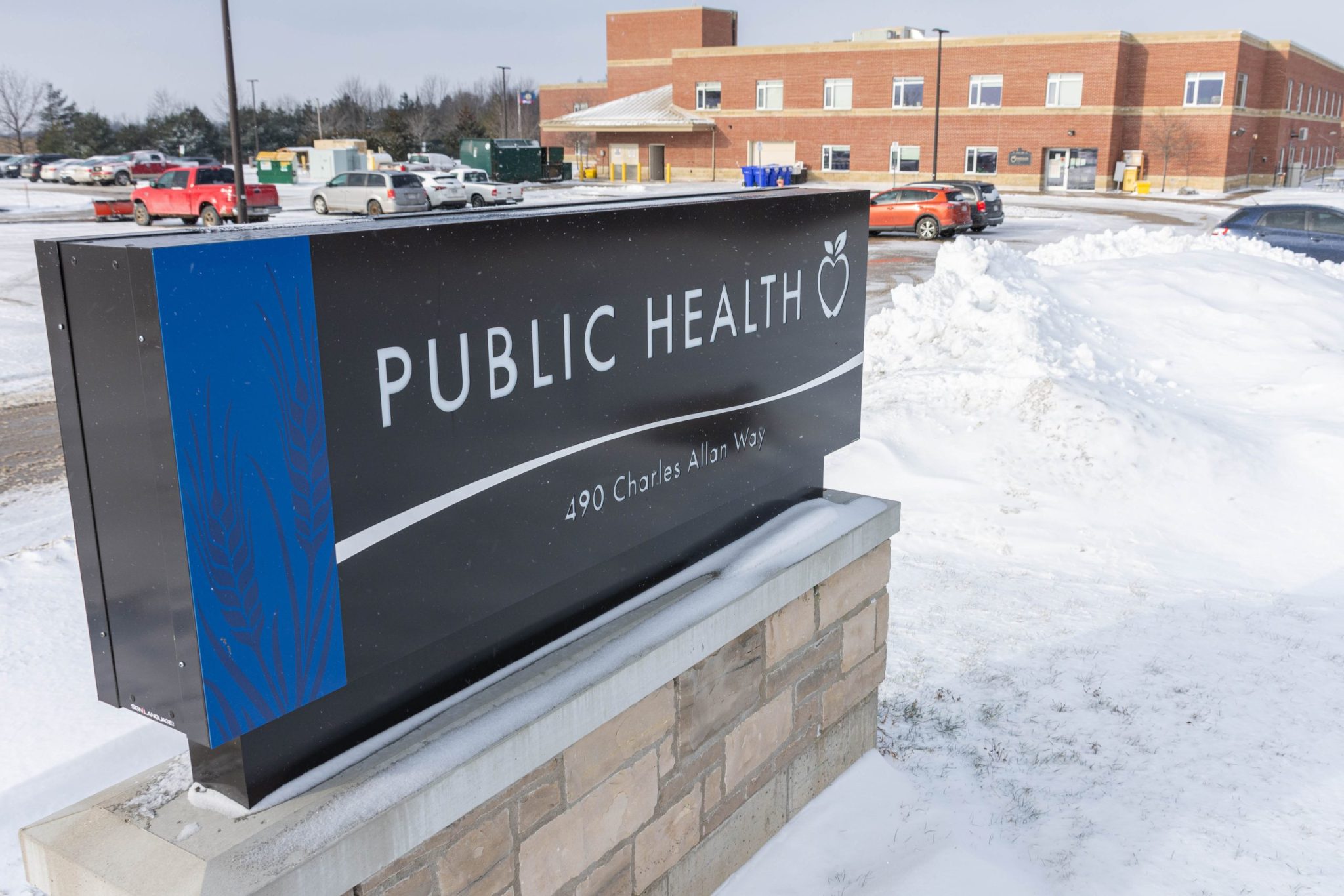GUELPH – With less than a year of funding left in the program, Our Food Future officials are looking for long-term sustainable funding if the program is to have a future.
On March 1 health promotion specialist Rachel Coghlin provided an update on the program and where things are sitting right now to Wellington-Dufferin-Guelph Public Health’s (WDGPPH) board of trustees.
In May of 2019, the City of Guelph and County of Wellington were awarded $10 million in funding from Infrastructure Canada’s Smart Cities Challenge to create Canada’s first circular food economy.
In January of 2020, Guelph-Wellington officially launched Our Food Future, which aims to reimagine how the community produces, distributes, sells and consumes food.
Rather than a linear take-make-dispose model, Our Food Future intends to create a circular food system that increases access to nutritious foods, recognizes the value of waste, and creates space for businesses to adapt operations and implement circular practices, Coghlin told the board.
Partners divided into three working groups – the nutritious foods workstream, the waste workstream, and the business workstream.
WDGPH has two staff members on the nutritious foods working group, whose goal is to increase access to affordable, nutritious foods by 50 per cent by 2025.
The group completed a food environment assessment to identify gaps and opportunities and has since initiated a community-driven food security action plan.
The committee distributed almost $150,000 in grants to help small scale food access initiatives.
Some $51,500 of that was distributed through Sparks grants – 11 small grants between $2,000 and $10,000 to small-scale projects.
The Town of Erin, for example, received $5,000 for a collaborative learning project called From Seed to Plate.
The project encourages residents to grow food (seeds provided) and includes education on growing, cooking and preserving.
Big Brother Big Sisters of Centre Wellington received $2,000 for its project called Growing Potential. This program encourages Bigs and Littles to grow food together.
And $2,500 will go to Mount Forest for a community garden designed to grow food, build connections and celebrate community.
The nutritious foods working group also allocated $30,000 to expand its fresh food prescription program, where doctors and healthcare practitioners prescribe fresh food to community members who need it for their health.
Participants redeem their prescriptions for free fruits and vegetables at The SEED markets or online grocers.
The program is offered at the Guelph Community Health Centre but funding will be used to build capacity and expand the program to additional healthcare providers throughout Guelph and Wellington County.
Setting the Table is another initiative of the working group. It is a series of gatherings where participants can share their successes and learning opportunities.
About $20,000 was set aside for the initiatives, to cover the cost of food, supplies, childcare, transportation or gathering space.
The working group also set six priorities in its action plan:
- increased distribution and use of healthy food prescriptions and vouchers by health and social service agencies;
- increased food infrastructure for food storage, processing, distribution and community building;
- increased awareness about the importance, value and right to healthy food for everyone;
- coordinated funding strategy that results in reliable funding sources for local food system work to support service delivery and service innovation;
- increased public land used for food growing and retail opportunities for growers; and
- increased regenerative practices used in food production, with greater understanding of the value of these ecosystem services.
Board member Linda Busuttil wanted to know more about the integrated funding priority.
“I understand the funding is coming to an end,” she said.
“The funding ends December 2023,” Coghlin replied. “We are trying to figure out how to keep the momentum going.”
David Anderson, who is a board member, a county councillor and former mayor of Minto, said he’s familiar with Our Food Future from the municipal government aspect of the program.
He suggested private money might be coming to keep the initiative alive.
“It’s a great partnership,” said Anderson.
“A lot of private funding will be coming into this program. There’s a lot of business interest in it.”
Medical officer of health Dr. Nicola Mercer said at the end of the program there will be an evaluation that may also lead to next steps.
“That’s where you get the bang for our buck,” she said.
The board received the report for information.




